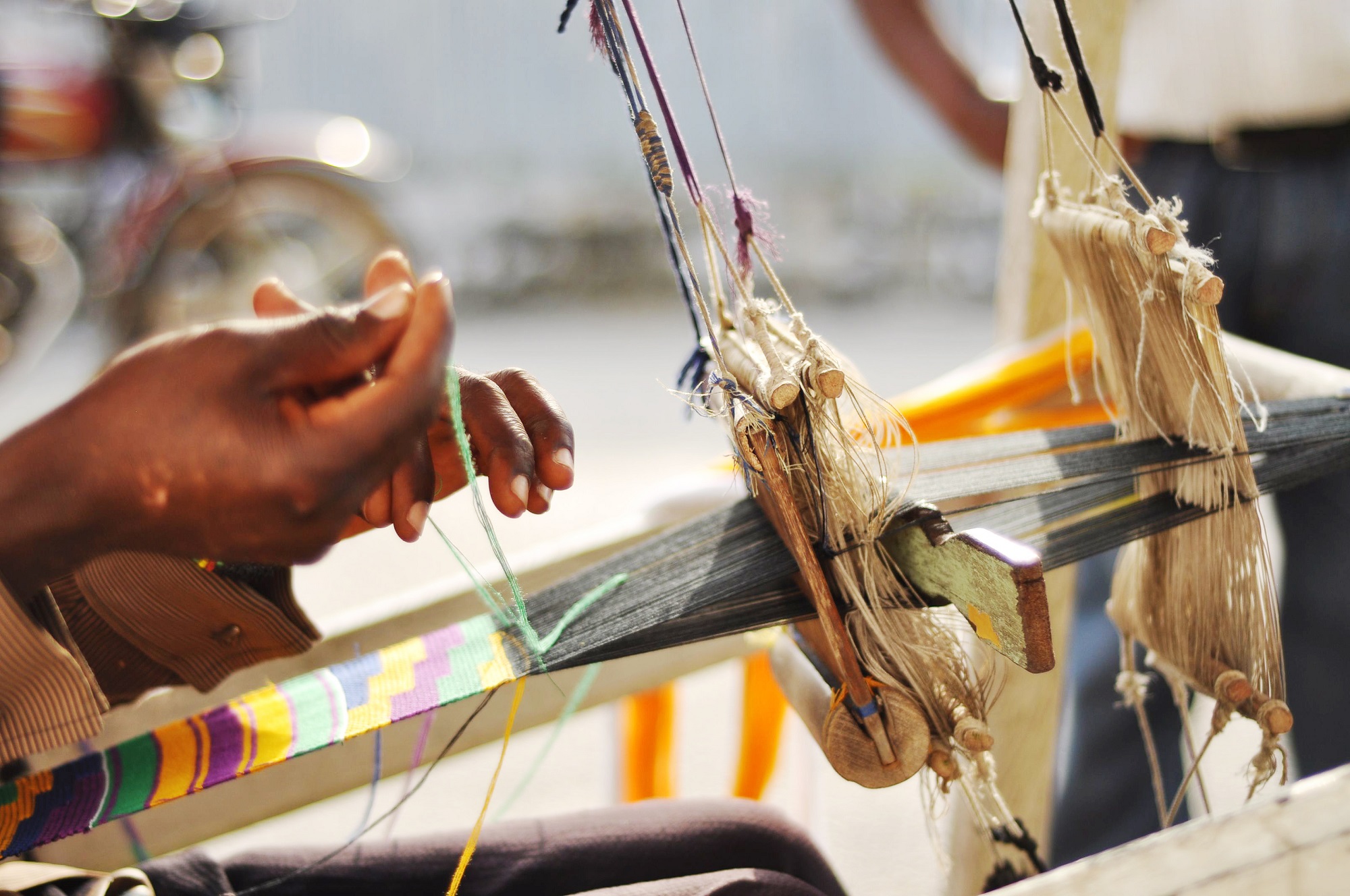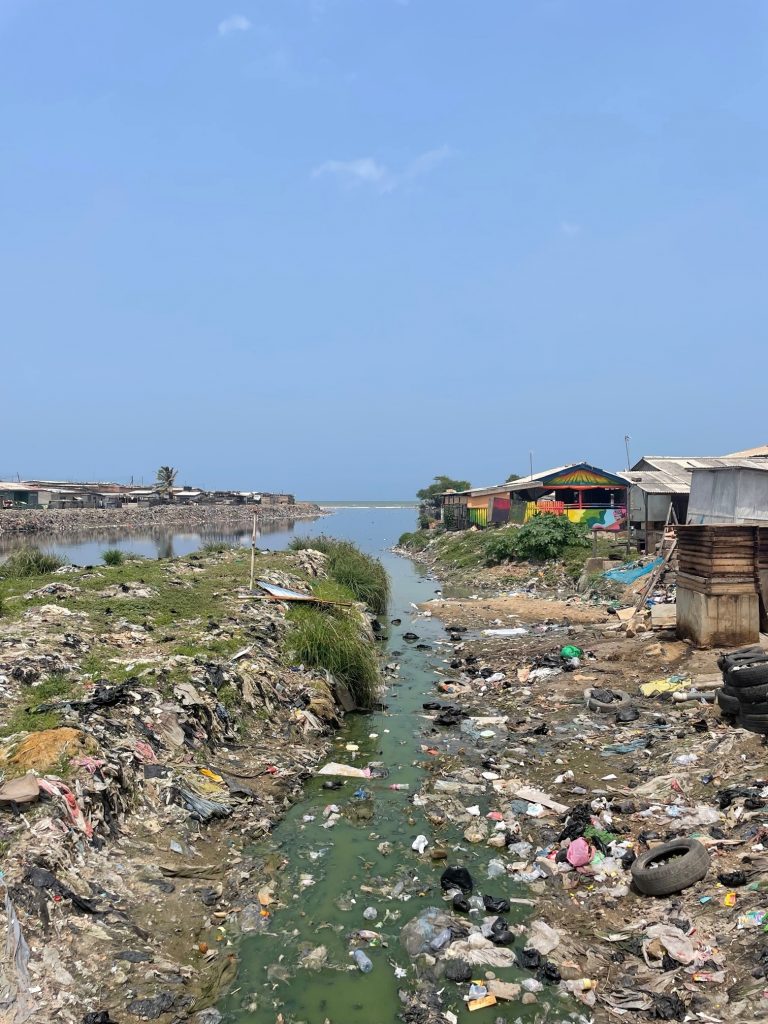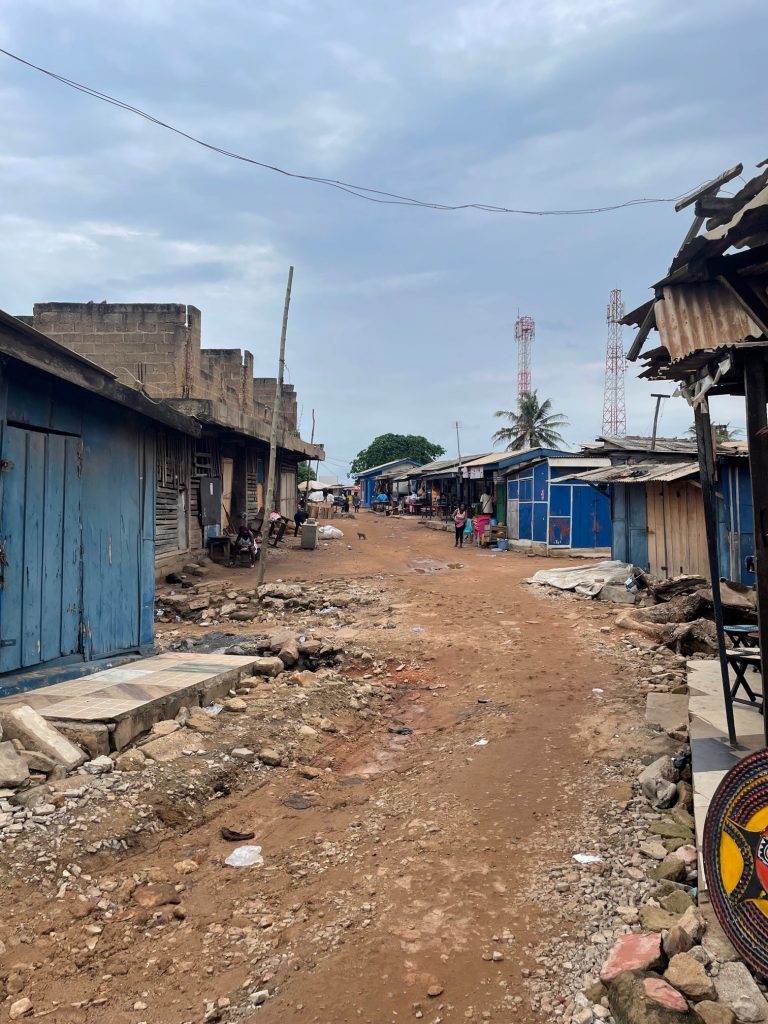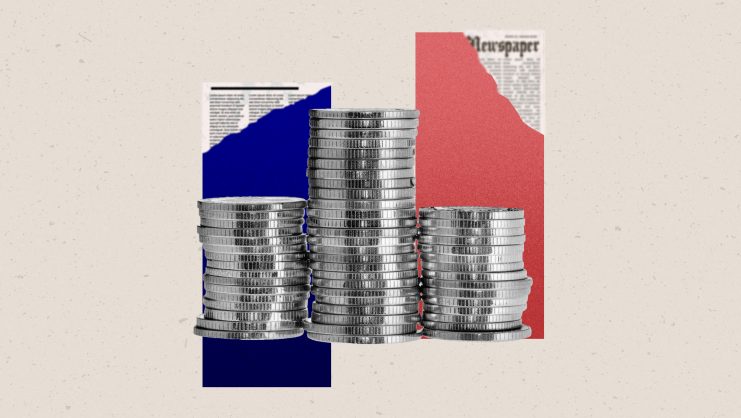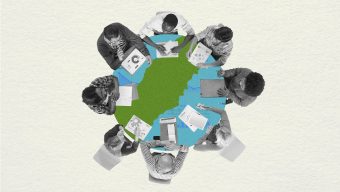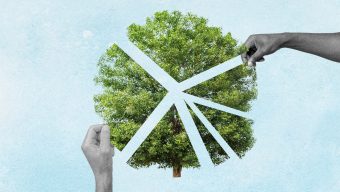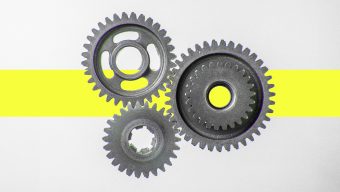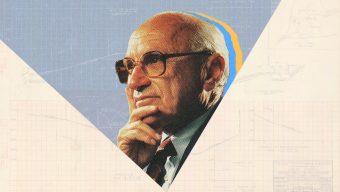Our driver, Jonas, had been relatively lucky. When he was a child and first began to speak, a stutter revealed itself. For this heinous crime, being from a disadvantaged family in a poor country such as Ghana, Jonas was abandoned by his parents at an early age. His relative good fortune was that while other children with similar issues were often thrown into the river to drown, he was simply left in the care of an aunt who lived in squalor in the village.
Jonas has since eked out a living by ferrying people around the city and he now owns two vehicles thanks to small loans that he paid off month after month. Although he panicked during the most difficult period of the pandemic, he tells us that he has been able to get by. He even helps his parents financially, despite their neglect when he was young.
We drive through the dusty, bustling streets of Accra and arrive at a small establishment in a very poor area of the city. My group is a team of finance students and faculty traveling with IE Business School’s Financiers sin Fronteras (Financiers without Borders) and we are here to meet with the people who established themselves as an NGO and provide (basically life changing) microloans, primarily to impoverished women. The leader of this particular NGO is Joseph. Joseph got into the microlending business after making some money in the rubber business and then decided to reinvest in this endeavor by providing opportunities to people whom he called ‘the underprivileged’.
The next day, Joseph takes us to meet some of his ‘clients’ (this being the term he uses to refer to the women receiving the microloans.) We arrive to a strip of land about 500 meters long that leads down to the sea. When I walk into an area of dilapidated shacks, an intense stench greets me.
View from the estuary towards the ocean, Accra. Photo courtesy of the author.
Then, in the midst of such abject poverty, I notice some small constructions built of wood and concrete, where the fish that had been bought that morning is being smoked. I go inside one of them and meet Susan, a woman who is about 55 years old and has subsisted on buying fish each morning at the beach, smoking it before noon, and then selling it at the market during lunchtime. The raw fish was piled up on the ground next to her and she placed them one after another on the smoking slats. Susan had already received several microloans from Joseph’s NGO in order to buy more smokehouses. She now owns six in total and although she is still living in poor conditions, she is getting by.
The loans that Joseph and NGOs like his provide to clients are initially the equivalent of about €10-15. As the loans are repaid, they progressively increase and can reach up to €200. Furthermore, instead of being given to one individual at a time, the loans are given to a group – usually five to six women – and the person acting as the project ‘leader’ of that group is the contact person with the NGO that is providing the loan. Thus, the liability is shared: if one does not pay, the rest are held responsible. This keeps default rates low, which means that more loans can be granted.
The dwellings that house many of the people working in the smokehouses are located just across the road. The conditions of these houses is, frankly, appalling – but each dwelling does have one lamp and this is better than in the rural areas where many of the homes are made of adobe and are without electricity. Yet, still, there is no sewage system here and the small river that separates the neighborhoods is used as a dunghill as well as a toilet, so it is difficult to distinguish between the river, the garbage, the feces, and the estuary to the sea.
View of the smokehouses. Photo courtesy of the author.
We meet another woman, perhaps 60 years old, whose small store overlooks the street rather than the sea. She designs and sells dresses and has used her microloans to invest in fabric. After looking through her wares displayed in her modest store, I make my way back to the dunghill river and come across some people sitting together playing dice. With a smile they invite me to join their game. Their laughter does not reflect a sense of happiness, only a brief moment. I have learned after my many years of spending time in Ghana that joy and happiness are different – it is very difficult to aspire to any reasonable kind of happiness if you are living in such miserable conditions. I eventually leave my fellow dice players and retrace my steps towards the dunghill river. Four skinny cows with straight horns are enclosed between some slats and a woman walks by with goods piled high on her head. She seems to me profoundly dispirited.
I know that since Mohammed Yunus devised the idea of microloans in Bangladesh in the 1970s, they (and Yunus himself) have had a checkered track record. I also know that life is a mix of experiences and realities. In general, academic research shows that there is no correlation between widespread microlending and the immediate eradication of poverty. However, research also shows that microloan penetration does explain enhanced human development. For example, if a mother has her young children participate in the family’s farming efforts and she is able to purchase fertilizers through a microloan, her children are then more able to go to school thanks to increased production of her fields. This is the human development analyzed by the UN that does generate a notable economic impact in the medium term.
One Jesuit NGO we visit uses the slogan “education is opportunity.” Joseph’s NGO aims “to provide opportunities to the disadvantaged through microloans.” There are many of us who have an entrepreneur inside, but not all of us have the access to credit that might turn our ideas into business reality. Jonas, Joseph, Susan, and the others I have met over the years in Ghana are examples of how even the smallest amount of funding can be used to turn on the light of opportunity, even in the midst of darkness.
© IE Insights.



